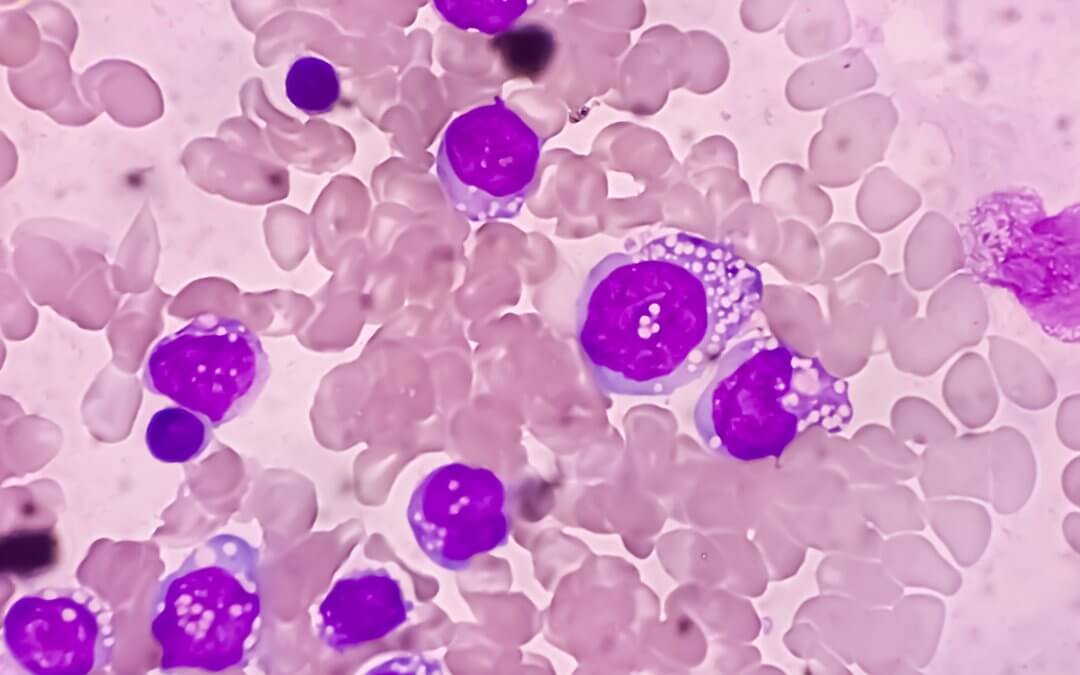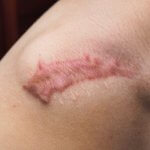A CAR-T cell therapy for acute lymphoblastic leukaemia[1] has recently been approved by the FDA for use in clinical trials in the United States. The therapy is based on cells derived from allogeneic (donor) umbilical cord blood; it is the very first such treatment to gain FDA approval.[2]
What is acute lymphoblastic leukaemia?
Acute lymphoblastic leukaemia, or ALL, is a type of blood cancer that starts in the bone marrow. It affects white blood cells (lymphocytes).
In ALL, the bone marrow makes too many of the cells from which lymphocytes derive (lymphoblasts). These lymphoblasts grow and divide quickly; however, they are not fully developed and cannot turn into healthy lymphocytes.
As a result, lymphoblasts build up in the bone marrow and stop all types of healthy blood cells from developing. They may also spread into other parts of the body, including lymph nodes, the liver and spleen, and the brain and spinal cord.[3]
The lack of healthy white blood cells means ALL patients are at a higher risk of infection. ALL can also cause anaemia through the lack of red blood cells, as well as bleeding problems due to lower platelet numbers.[4]
Leukaemia is the most common type of cancer which affects children; of all types of leukaemia, ALL is the most commonly diagnosed in children.[4] It can also affect adults, although this is less common.[3]
What is CAR-T cell therapy?
CAR-T therapy is a type of treatment which uses T cells to fight cancerous cells. The T cells are genetically modified using a viral vector to add a specific protein on their surface, called a chimeric antigen receptor (CAR). This addition makes them able to recognise cancerous cells and destroy them.[5]
In standard CAR-T therapy, the T cells used are the patient’s own, extracted from the blood through a process called apheresis. After extraction, they are taken to a specialised lab to be modified. However, this process is very time-consuming, typically requiring three to five weeks for manufacturing and quality checking. This can be a problem in the case of ALL, as the disease is fast-progressing and could worsen before the CAR-T cells are ready to be reinfused.[6]
What makes this new therapy different?
The new therapy uses T cells derived from allogeneic (someone else’s) cord blood as a starting point instead. These cells are in a more naïve state, meaning they have a higher ability for self-renewal and lower immunogenicity. This means a lower chance to provoke an immune response when used in treatment. As a result, they can be developed into an ‘off-the-shelf’ CAR-T therapy that is ready when needed and does not require a long wait.[2] Following positive results from investigator-initiated trials,[1] the FDA has now approved the therapy for clinical trials in the United States.[2] Furthermore, researchers in China are also testing the therapy in a clinical trial for the treatment of lupus.[7][8]
A similar therapy, also based on T cells derived from donor cord blood, is being developed at the Fondazione Tettamanti research centre in Monza, Italy. Using a special DNA sequence called a transposon, scientists turn the T cells into CAR-enabled cytokine-induced killer cells (CARCIK), making them able to destroy cancer cells. An initial set of clinical trials aimed at determining the feasibility and safety of this treatment showed positive results. Researchers are now continuing to test the therapy in clinical trials for ALL as well as non-Hodgkin lymphoma, and in vitro and animal models for acute myeloid leukaemia.[9]
The benefits of using cord blood for treatments
Being able to derive T cells for CAR treatment from cord blood could pave the way towards more targeted therapies in the future, says Sarah Tettamanti, a researcher at Fondazione Tettamanti. These therapies could be developed from banked cord blood compatible with each specific patient.[9]
For treatments such as these, it could be essential to have ready access to a compatible donor match. Public cord blood banks are available in the UK and worldwide. However, because they rely on donated cords from only a small number of hospitals[10], there is no guarantee that a match will be found when needed.
Conversely, if you store your baby’s cord blood privately at birth, they will always have access to their own perfect match if they ever need it. There is also a 25% chance for the cord blood to be a perfect match for a sibling and 50% chance of a partial match. It is guaranteed to always be a partial match for parents.
It could also prove to be a match for a more distant relative – which thanks to cord blood cells’ naïve state and lower immunogenicity, could still be enough for treatment.
To learn more about the potential uses of cord blood in treatments and how you could preserve this precious resource for your baby and family, fill in the form below and request our free guide.
References
[7] https://mp.weixin.qq.com/s/t7tQTUwpl5vmr78cSRXGhQ
FIND OUT MORE, REQUEST YOUR WELCOME PACK TODAY
All you need to know to make an informed decision.
Provide your contact details to request:
– Complete Welcome Pack and Parent’s Guide
– Information via email
– Contact from our specialist advisors









